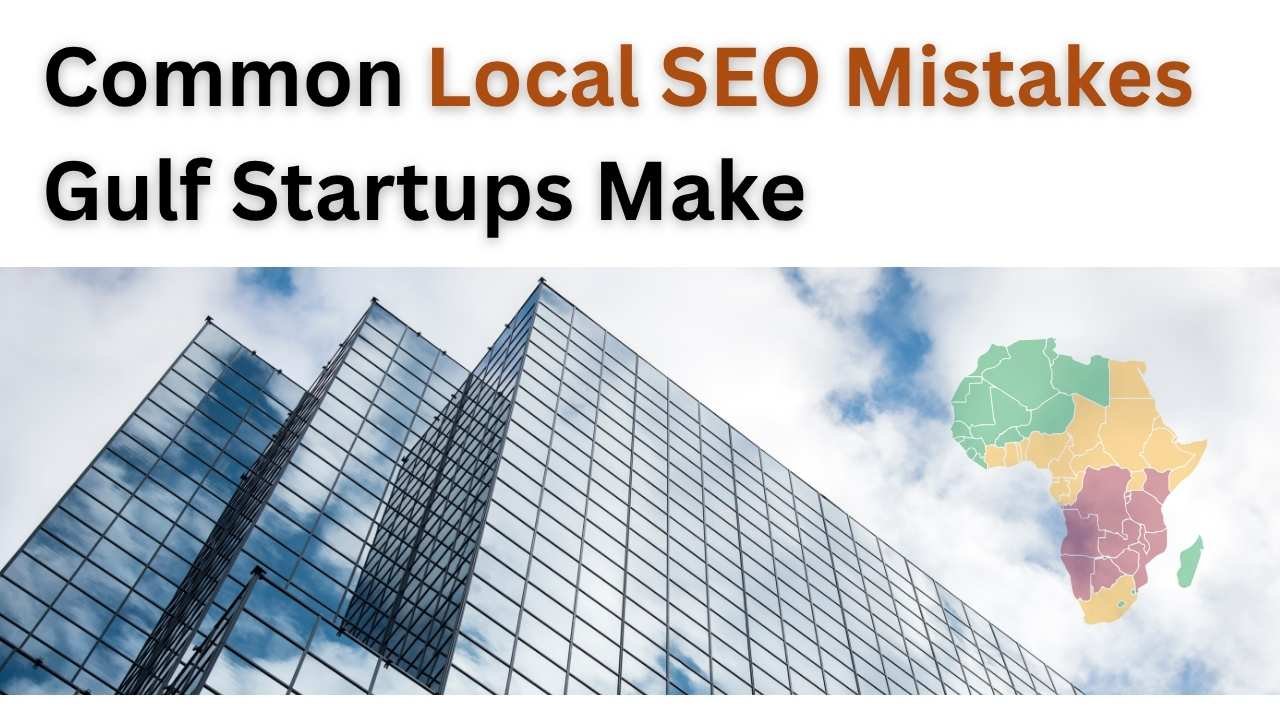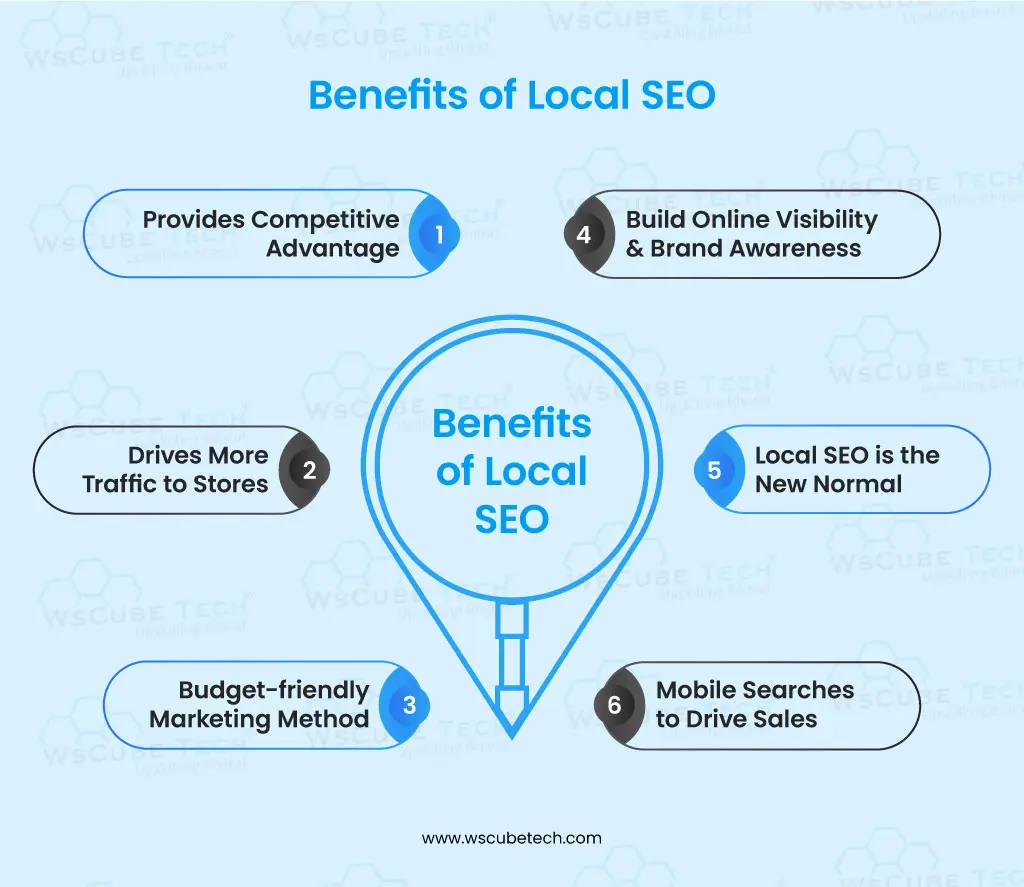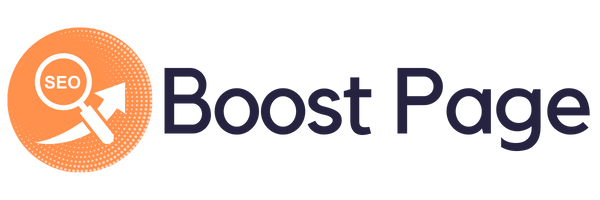
The Gulf region, especially countries like the United Arab Emirates (UAE), Saudi Arabia, Qatar, and Bahrain, is experiencing an entrepreneurial boom. Startups are growing rapidly, thanks to favorable policies like the UAE’s Golden Visa program, innovation hubs, and digitization efforts. However, many of these promising ventures fail to gain visibility in local online searches, resulting in lost leads and low brand awareness.
Local SEO (Search Engine Optimization) is the gateway to digital visibility for any startup targeting a city-based customer base. Yet, common mistakes prevent Gulf startups from showing up in Google Maps or local listings. Understanding these pitfalls is the first step to getting discovered by nearby customers.
What Is Local SEO and Why Does It Matter for Gulf Startups?

Local SEO is the practice of optimizing a business’s online presence to attract more traffic from relevant local searches on Google and other search engines. Unlike general SEO, local SEO focuses on location-based queries such as “cafe in Dubai Marina” or “lawyer in Doha.
For Gulf startups, visibility in local search results is not optional—it’s vital. The Gulf’s high smartphone penetration rate—over 96% in the UAE according to Statista—means people frequently use mobile devices to find local services. With Local SEO, startups can:
- Increase foot traffic for physical stores
- Rank higher on Google Maps
- Build local brand recognition
- Attract reviews and trust signals from real customers
Without a solid Local SEO strategy, even the best products can remain invisible to the local community.
Are You Ignoring Google Business Profile Optimization?
One of the biggest mistakes Gulf startups make is neglecting their Google Business Profile (formerly Google My Business). This free tool lets businesses manage how they appear on Google Search and Maps.
A poorly optimized or incomplete profile can significantly hurt your visibility. Common errors include:
- Missing or incorrect business categories
- No business hours listed
- No high-quality images or logo
- Lack of service descriptions
- No customer reviews
According to Google’s official guide, a complete profile is 70% more likely to attract location visits and 50% more likely to lead to a purchase.
Startups should:
- Choose accurate categories (e.g., “Digital Marketing Agency in Abu Dhabi”)
- Upload consistent branding images
- List accurate opening hours
- Encourage and respond to reviews
- Regularly update posts and promotions
Why Is NAP Consistency So Important Across Directories?

NAP stands for Name, Address, and Phone number. Consistency across all online platforms—including Google, Facebook, local directories, and your own website—is essential.
If your business is listed as “XYZ Solutions” on Google and “XYZ Solution FZ LLC” on another platform with a different phone number, Google may get confused and lower your search ranking.
Inconsistencies dilute your SEO value and confuse both search engines and customers. According to BrightLocal’s 2023 report, 68% of consumers would stop using a local business if they found incorrect information online.
To fix this:
- Audit all listings regularly
- Use tools like Moz Local or Yext
- Standardize formatting (e.g., phone number as +971-50-123-4567)
This step ensures your Gulf startup gains trust and ranks higher locally.
Are You Skipping Local Keyword Research?
Many startups in the Gulf make the mistake of targeting only broad or global keywords. For example, using “SEO agency” instead of “SEO agency in Sharjah” will attract global competition, making it hard to rank.
Local keyword research helps you understand what your audience is really searching for. Free tools like Google Trends or Ubersuggest can show trending city-specific terms.
For example:
- Digital marketing Dubai
- “Coffee shops in Jeddah”
- “Interior designer Bahrain”
Optimize your:
- Website titles and headers with local terms
- Meta descriptions
- Blog content around local queries
This approach ensures your content speaks directly to your target audience.
Why Ignoring Reviews Can Kill Your Local Rankings

Reviews are a major ranking factor for local SEO. Google itself confirms that “high-quality, positive reviews from your customers can improve your business visibility.”
In the Gulf, where word-of-mouth is still highly influential, online reviews act as a digital trust layer. A study by Podium shows that 93% of consumers say online reviews impact their buying decisions.
Mistakes startups make:
- Not asking customers for reviews
- Ignoring or deleting negative reviews
- Failing to respond to feedback
Best practices:
- Ask for reviews after a successful transaction
- Respond politely and professionally to all reviews
- Use SMS or email reminders to collect feedback
Building a consistent stream of reviews signals reliability and improves map pack rankings.
Do You Lack Locally Optimized Content on Your Website?
Having a beautiful website isn’t enough if it doesn’t speak to local audiences. Many Gulf startups have generic content that lacks city-level relevance.
Google prefers websites that show local intent. This means:
- Location-specific landing pages (e.g., “Cleaning Services in Abu Dhabi”)
- Local blog topics (e.g., “Top Co-Working Spaces in Dubai”)
- Using local keywords naturally
For example, if you’re a food delivery startup in Doha, you should have a page titled “Food Delivery in Doha” with menus, delivery areas, and customer testimonials specific to that city.
You can also include:
- Embedded Google Maps
- Address and phone numbers in the footer
- Local events or news sections
This builds local relevance and user engagement.
Are You Missing Local Backlinks and Citations?
Backlinks (inbound links) from local sources help boost your domain authority and signal relevance to search engines. But many startups focus only on generic or international links.
Instead, aim for local citations and backlinks from:
- Local news outlets (e.g., Gulf News, Khaleej Times)
- Local blogs or business directories
- Chambers of Commerce or startup incubators (e.g., Dubai SME)
Use PR tactics to get featured in Gulf-based publications. Participate in local events and request media coverage. Even a mention on a university’s startup lab website helps.
These local signals dramatically improve your search visibility in city-specific results.
Is Your Website Mobile-Unfriendly or Slow?
According to Google’s research, 53% of users leave a website if it takes longer than 3 seconds to load. In the Gulf, where mobile usage dominates, this becomes even more critical.
Mistakes include:
- Unresponsive website design
- Large, uncompressed images
- Slow hosting servers based outside the Gulf region
Use tools like Google PageSpeed Insights or GTmetrix to test your website.
Solutions:
- Choose Gulf-based hosting providers
- Compress images and use lazy loading
- Use responsive design frameworks (e.g., Bootstrap)
Mobile-first indexing means Google prioritizes the mobile version of your website for ranking—make it count.
Are You Forgetting to Embed Google Maps on Contact Pages?
Embedding Google Maps on your contact page does more than help customers find you—it also strengthens your local relevance.
Benefits include:
- Enhanced user experience
- Better local SEO signals
- Increased trust and credibility
According to Google’s developer documentation, embedded maps are crawlable and can support schema data.
How to do it:
- Go to your business location in Google Maps
- Click “Share > Embed a map”
- Copy the iframe code and paste it into your website’s contact page
Combine this with structured data (schema) for maximum local SEO impact.
Do You Use Local Schema Markup?
Schema markup is a form of structured data that helps search engines understand your business better. LocalBusiness schema tells Google details like:
- Business name
- Address
- Phone number
- Opening hours
- Service area
According to Schema.org, adding this information can enhance your search snippets with rich results, making you stand out.
Tools to generate schema:
Validate your markup with Google’s Rich Results Test
Implementing schema markup gives your Gulf startup an edge in competitive local markets.
Conclusion: Fix These Mistakes to Boost Visibility
Gulf startups have immense growth opportunities—but only if they are visible where their customers are searching.
Mistakes to avoid include:
- Incomplete Google Business Profile
- NAP inconsistencies
- Ignoring local keyword research
- Not managing reviews
- Poor local content
- No local backlinks or citations
- Slow, non-mobile-friendly websites
- Missing schema or Google Maps embeds
By correcting these errors, startups can dramatically increase their chances of ranking on Google Maps, gaining trust, and driving local sales. Local SEO is not a one-time task but an ongoing strategy—start now and adjust as you grow.
Table: Local SEO Mistakes and Fixes for Gulf Startups
| Mistake | Impact | Fix | Tool |
|---|---|---|---|
| Incomplete GBP | Low map visibility | Complete with images, hours, reviews | Google Business Profile |
| NAP Inconsistency | Confused users, lower rankings | Audit and sync across platforms | Moz Local, Yext |
| No Local Keywords | Attracts wrong traffic | Use city-based keywords | Ubersuggest, Trends |
| No Reviews or Responses | Low trust and ranking | Ask, respond, and monitor reviews | GBP Dashboard |
| Generic Website Content | Poor local engagement | Create city/service-based landing pages | CMS + SEO plugin |
| No Local Backlinks/Citations | Weak domain authority | Outreach to local media and directories | BrightLocal |
| Mobile/Speed Issues | High bounce rate | Optimize design, hosting, and loading speed | PageSpeed Insights |
| No Google Maps Embed | Lower local signals | Embed using Google Maps tool | Maps Embed Tool |
| Missing Schema Markup | Limited SERP visibility | Implement LocalBusiness schema | Schema Generator |
By using these insights and tools, Gulf startups can avoid costly errors and build a solid foundation for long-term local search visibility.





